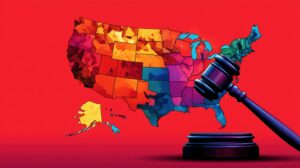There’s no question that the food side of FDA has been under-resourced and underfunded for years, as documented in a Reagan-Udall report, but there is much question about how – and if and when – that could be reconciled.
So, once again, the issue of user fees for the food side of FDA has been raised for consideration. This is not the first time this issue has come up, and it was hotly debated about 20 years ago and then abandoned for a variety of reasons. But it is back on the table again as debate continues on how to get FDA the resources it needs.
Noting that user fees have been successfully implemented to provide FDA with resources for other programs, a recent NIH-supported study by researchers from three universities suggests that a comprehensive user fee program for food could not only generate new targeted resources to strengthen the agency’s oversight, but also benefit industry. The study is particularly relevant as it uses the gaps in pre- and post-market oversight of food ingredients (a current heavy focus of HHS) as an example of an area of particular concern.
While the FDA foods program primarily relies on congressional appropriations to fund its activities, the same is not true of the agency’s drug and tobacco programs. With user fees assessed to recoup costs associated with government regulatory activities or services that directly benefit the industry, the study cites 2022 figures that user fees made up:
- 66% of the $2.116 billion human drugs budget
- 100% of the $680 million tobacco budget
- 1% of the $1.145 billion foods program budget
While any FDA user fee must be authorized through an act of Congress, the FDA currently has statutory authority to collect certain fees through the Food Safety Modernization Act (FSMA), such as to recoup costs for reinspection of domestic food facilities, failure of a domestic facility or an importer to comply with a recall order, and voluntary third-party accreditation and importers programs. But, even with these, the report notes that FDA does not collect all authorized user fees. As an example, FSMA requires that FDA publish guidance considering the fee burden on small business and adjust the fee schedule accordingly. Because the agency has not yet published that guidance, it is not collecting these fees, for which 2023 reinspection fees alone would have generated an estimated $9 million.
In terms of benefiting the industry, the researchers state that while industries generally oppose the imposition of user fees, the fees are often later supported because they establish efficient regulatory implementation and bring stability to programs, such as enabling FDA to more expeditiously review applications and companies to anticipate timelines and bring products to market more efficiently. Additionally, because FDA is required by law to spend user fee funds only on the specified activities for which they have been allocated, fee payers can be assured that the funds are being used to directly support the program for which they are paying the fee.
Even though user fees are often found to benefit the industry for which they are charged, a common opposition is that they increase product cost. However, a 2022 HHS evaluation found that user fees make up less than one percent of the expected revenue for medical devices and prescription drugs, suggesting that user fees don’t impact a company’s decision to bring a product to market or increase product price. This may or may not reflect quite the same for foods, but it is an area that should be assessed. Additionally, in any case, small business fee reductions or exceptions should be considered.
With a new focus on products that are GRAS and the potential for a lot of new applications for GRAS review, along with a growing focus on understanding risks from a large variety of chemicals, there will be an urgent need for resources for FDA. Many will argue that this should be appropriated dollars through Congress and not funded by industry. But maybe there is a middle ground for various “services” that FDA undertakes for the food industry.
User fees have become an accepted practice, primarily to pay the agency’s activity costs for voluntary programs a company wishes to undergo (e.g., FSMA’s Voluntary Qualified Importer and Third-Party Certification programs) and extraneous activities required by FDA (e.g., for facility and import reinspections, recall noncompliance, etc.), the implementation of user fees for additional activities, such as pre- or post-market ingredient reviews, and GRAS evaluations, could benefit both FDA and the industry by enabling a focus on these areas without reducing agency resources for other more general, industry-wide, food safety activities.
All written content in TAG articles, newsletters, and webpages is developed and written by TAG experts, not AI. We focus on the realities and the science to bring you the most current, exacting information possible.





